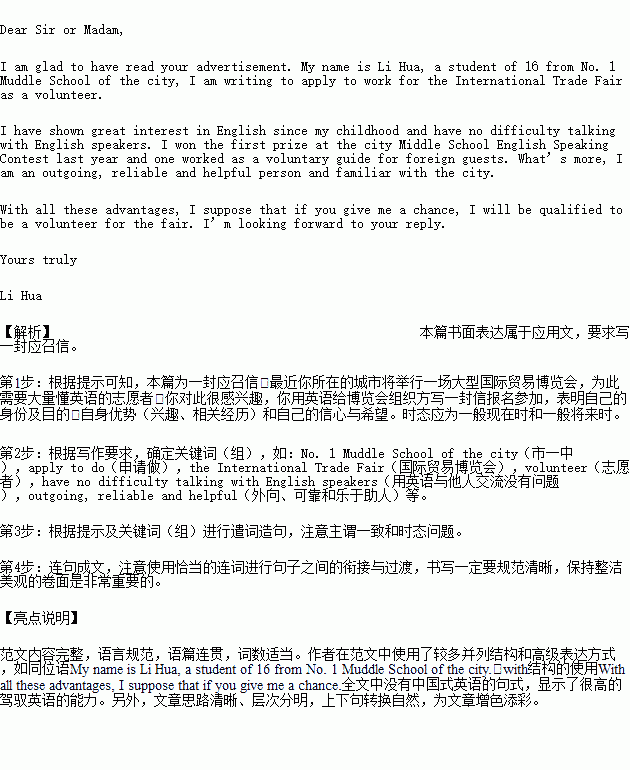题目内容
假设你是市一中的学生李华,最近你所在的城市将举行一场大型国际贸易博览会,为此需要大量懂英语的志愿者,你对此很感兴趣,请按照以下要点用英语给博览会组织方写一封信报名参加。
1. 身份及目的
2.自身优势(兴趣、相关经历)
3. 信心与希望。
注意:
1. 词数100左右;
2.可以适当增加细节,以使行文连贯;
3.开头语已为你写好,不计入总词数。
参考词汇:国际贸易博览会International Trade Fair
Dear Sir to Madam,
I am glad to have read your advertisement.___________________________________________________________
____________________________________________________________________________________________________________________________________________________________________________________________________________________________________________________________________________________________________________________________________________________________________
Yours truly,
Li Hua
练习册系列答案
相关题目

